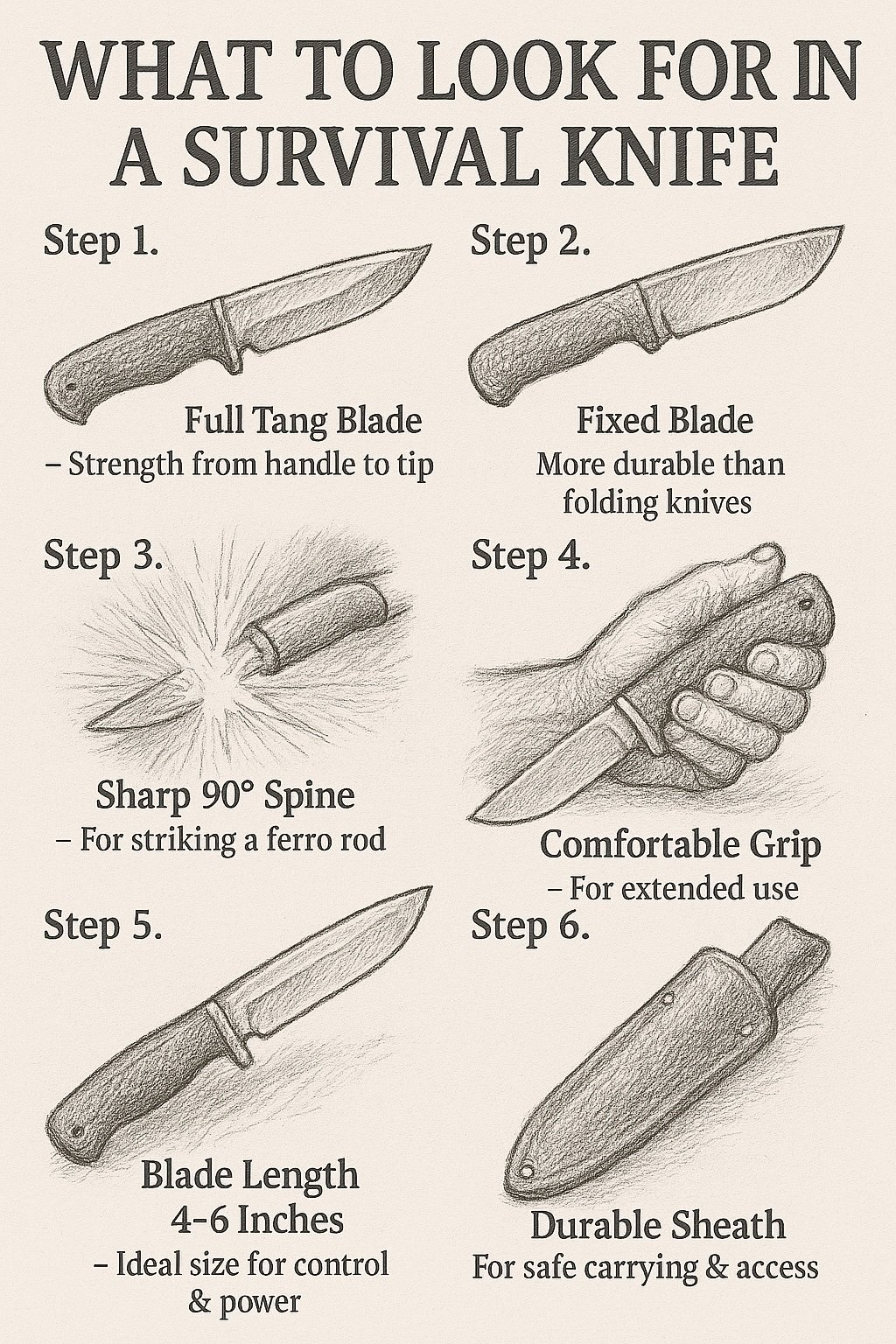Day 20: What’s the best survival knife…
My personal favorite survival knife…
I just put on a massive discount (see now above)
What to Look for in a Survival Knife
The survival knife debate is endless—but there are a few proven truths. These come from decades of field experience, especially from experts like Mors Kochanski and David Holladay, who lived what they taught.
Core Survival Knife Features
Curved edge
A continuous curve allows for draw cuts, which are more effective than press cuts.Blunt-ish tip
Super pointy tips break easily. A slightly rounded tip holds up to hard use.Full tang
One solid piece of steel from tip to pommel = strength and reliability for batoning and chopping.Indestructible handle
No loose parts. No failure points. Needs to survive drops, splits, and prying.Hammer-capable pommel
You should be able to crush, crack, or hammer with the bottom of the handle.
What Not to Look For
Avoid knives that try to do everything.
Knives that look cool but lack focus
Proven Designs
The best knife designs already exist. They’ve been used for generations:
Puukko and Leuku (Lapland)
Jungle parangs and bolos (Philippines, Indonesia)
Simple machetes
These designs are effective because they’ve been refined through real-world use.
Add modern steel and full tang construction, and you’ve got a near-perfect blade.
Top Picks
Skookum Bush Tool – If you can find one
TOPS BOB (Brothers of Bushcraft) – Reliable and well-designed
Anything based on traditional tools with modern materials
Bottom Line
A great survival knife doesn’t reinvent the wheel.
It refines time-tested designs with modern strength.
Stick to simplicity, durability, and field-proven shapes—and your knife won’t let you down.




